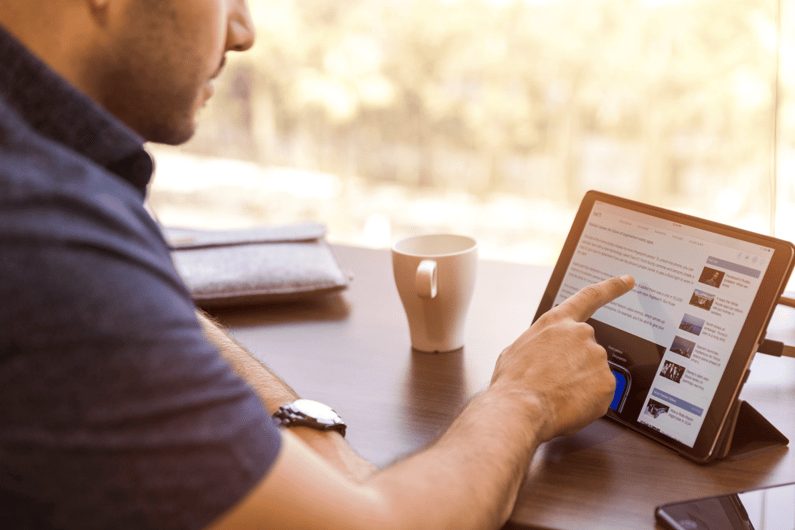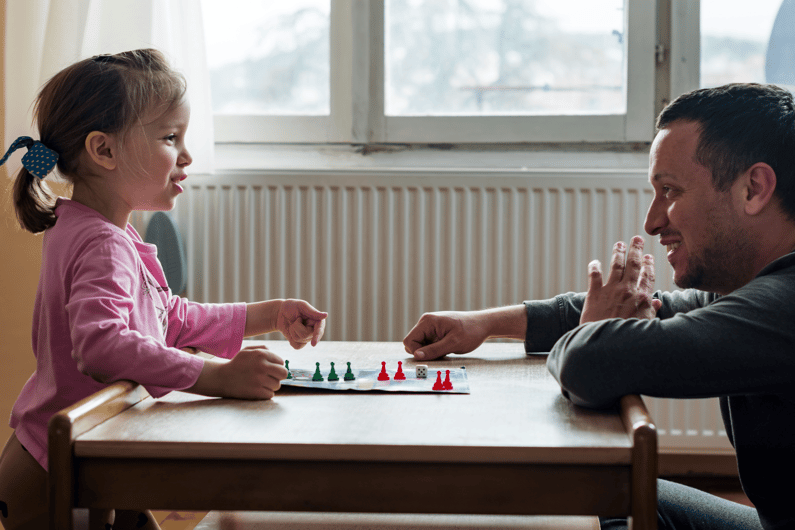
Don’t you love all the techy options available today—from apps. that remind us of our To-Do List—to wearable gadgets urging us to get up and get moving?
They’re great! Grandparents like them, our kids love them; even some of our pets are mesmerized by watching birds on a screen. If you have not done a search on Google for DOGTV, do it now!
But, could you be addicted to your handy-dandy electronics? Most adults check their phone fifty-eight times a day!
Some recent studies have found that the more screen time you use, the higher the likelihood of anxiety and depression. Electronic devices also emit a blue light that “tricks” the brain into thinking that it’s actually daytime. This makes it harder to fall and stay asleep.
Time Magazine reported in a study from the University of Pennsylvania, that students who trimmed their use of social media to 30 minutes a day experienced significant improvements in their wellbeing.
Maybe you are experiencing a few of these symptoms and didn’t think to associate them with spending too much time on your electronic devices.
Here are just a few side effects that can show up from too much screen time:
- Headaches
- Eyestrain
- Neck, shoulder, and back pain
- Poor sleep
- Depression
- Obesity
Did you know that most adults spend approximately 11 hours staring at a screen each day?
So what counts as screen time?
- Computer
- Video games
- Using a smartphone or tablet
- Watching television
Balance is important.
No one is asking you to give up your devices completely. While we realize that we live in an age that is ruled by technology, what we are asking is that you pay more attention to what you are spending your time on. That device will not love you back, it will not support you in your time of need. Relationships matter. Family matters.
“Wherever you are, be all there.” - Jim Elliot
Do not forget what is most important in life. Don’t neglect those that are closest to you. We typically don’t look back at memories and say, ‘I had a great day with my cellphone last summer.’
Let’s look at some options to replace this bad habit.
- Go for a walk or ride a bike.
- Play a board game.
- Plant a garden.
- Read a book.
- Join a gym.
- Volunteer at a non-profit.

It can become very convenient to depend on these digital babysitters—and it’s okay in moderation. But the reality is that we spend more time with our screens than we do building relationships and taking care of our bodies.
We have explained the negative aspects of too much screen time, how it can become a bad habit and what you can do instead, but what if you are having trouble setting healthy boundaries?
What can you do to stop this?
1. Commit to putting all handheld electronics in a basket during dinner or breakfast, or both!
2. Set them in the backseat of your car when driving, so you won’t be tempted to text and drive.
3. Set a timer when you do use your device, so you don’t lose track of how much time you are actually spending in front of a screen.
4. Turn off notifications. These sneaky reminders are basically poking at us—telling us to see what’s happening. Go to your settings and turn them off.
5. Change your settings. Some phones will give you weekly reports of how much screen time you had that week.
“An unintentional life accepts everything and does nothing.
An intentional life embraces only the things
that will add to the mission of significance.” - John C. Maxwell

Set boundaries and be accountable to yourself, first and foremost. You only get one shot at this life. Take care of your body. Take care of your relationships and make memories together!

